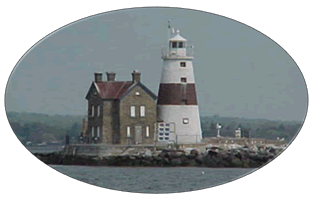Consumer Safety
This page shares information and sites to help us with safety issues: for ourselves, our parents, our children, and our grandchildren. To add to this page, please email the Webmaster.
# indicates a new item
 IMPORTANT INFO
IMPORTANT INFO
- #How to avoid claim FRAUD with Medicare or Empire - Thanks, Marilyn Gilbert
- How Seniors Safeguard Against Online Scammers - Thanks, Maria!
- The Ultimate Guide to Internet Safety
- Handicapped accessibility info at this website
- Port Washington Police District website
- From Ed Conti via SeniorNet: There is a new email scam that you should be aware of. The recipient receives an email that includes his or her home address, and a request for payment for an overdue invoice. If you click the link to the invoice, ransomware will be installed on your computer. (Ransomware is malware that encrypts your files and locks you out of your computer until you pay a ransom.) Click here to read the full story on ZDNet. The basic message, though, is this - don't click the link to the invoice if you receive this type of email.
- Check your cars for recalls at: https://vinrcl.safercar.gov/vin/vinLookup. You need to put in your VIN Number. (Vehicle Identification Number is 17 digits long.)
- Sites that provide links and advice on UNSUBSCRIBING from websites: Accountkiller.com, Justdelete.me
- Smartphone app: Nassau County New York Crime Stoppers enables members of the community to assist law enforcement via anonymous tips.
- For emergency communications for Port Washington-Manhasset residents, subscribe to North Shore Alert.
- How to prepare for disasters: Red Cross
- Important Local, NY State, and Federal Contact Information:
Town of North Hempstead or 311
Nassau County Office of Emergency Management: 516-573-0636
Long Island American Red Cross
Nassau County Police or 516-573-7000
Long Island Power Authority or 800-490-0075
Federal Emergency Management Agency
- You can now take the AARP Driver Safety course online.
 FAMILY SAFETY
FAMILY SAFETY
- EWG guide to sunscreens
- Keep your family safe while online: Google Family Safety Center
- Stranger Danger for kids
- UL Home Fire Safety
- U.S. Fire Administration's Fire Safety Escape Planning
- Good Housekeeping's Keep Your Family Safe
- Click for NYPIRG Child Safety. Also, NYPIRG's recommendation when shopping for children three and under: bring a toilet paper tube and don't buy any toys containing parts small enough to fit inside the tube.
- The U.S. Consumer Product Safety Commission's website gives info about product safety and recalls. Check this site for recent recalls.
- FamilyWatchdog.us was developed by John Walsh from America's Most Wanted.
- The Ecology Center, a non-profit environmental group, tests products for toxic chemicals: Healthystuff.org.
- Check car safety: The Insurance Institute for Highway Safety & The Highway Loss Data Institute or Safercar.gov.
- Put your car keys beside your bed at night. If you hear a noise outside your home or someone trying to get in your house, just press the panic button for your car. The alarm will be set off, and the horn will continue to sound until either you turn it off or the car battery dies. This tip came from a neighborhood watch coordinator. And remember to carry your keys while walking to your car in a parking lot. The alarm can work the same way there.
 PERSONAL SAFETY
PERSONAL SAFETY
- Birch Gold Group scam protection resource guide
- Social media safety guide for seniors
- Online safety guide for seniors
- How I Learned to Stop Worrying and Embrace the Security Freeze - article rec. by Ed Conti
- GPS: Don't put your home address in it. Put a nearby address, i.e., store or gas station so no one will know where you live if your GPS and/or car is stolen.
- Mobile phones: Do not disclose the relationship between you and people in your contact list. Avoid using names like Home, Hubby, Mom, etc. When sensitive info is being asked through texts, confirm by calling back. Also, when you're being texted by friends or family to meet them somewhere, call back to confirm the message came from them.
- Free fraud advice from an attorney below:
1) Do NOT sign the back of your credit cards. Instead, put "PHOTO ID REQUIRED."
2) When you are writing checks to pay on your credit card accounts, DO NOT put the complete account number on the "For" line. Just put the last four numbers. The credit card company knows the rest of the number, and anyone who might be handling your check won't have access to it.
3) Photocopy the contents of your wallet. Do both sides of each item. Keep the photocopy in a safe place.
4) File a police report immediately in the jurisdiction where your credit cards, etc. are stolen.
- The Alliance Against Telemarketing Fraud has created a new resource for consumers about fake check scams.
- If your wallet, credit cards, etc. are stolen: call the three National Credit Report Organizations immediately to place a fraud alert on your name and also call the Social Security Fraud Line Number:
Equifax: 1-800-525-6285
Experian (formerly TRW): 1-888-397-3742
Trans Union: 1-800-680-7289
Social Security Administration (Fraud Line): 1-800-269-0271


